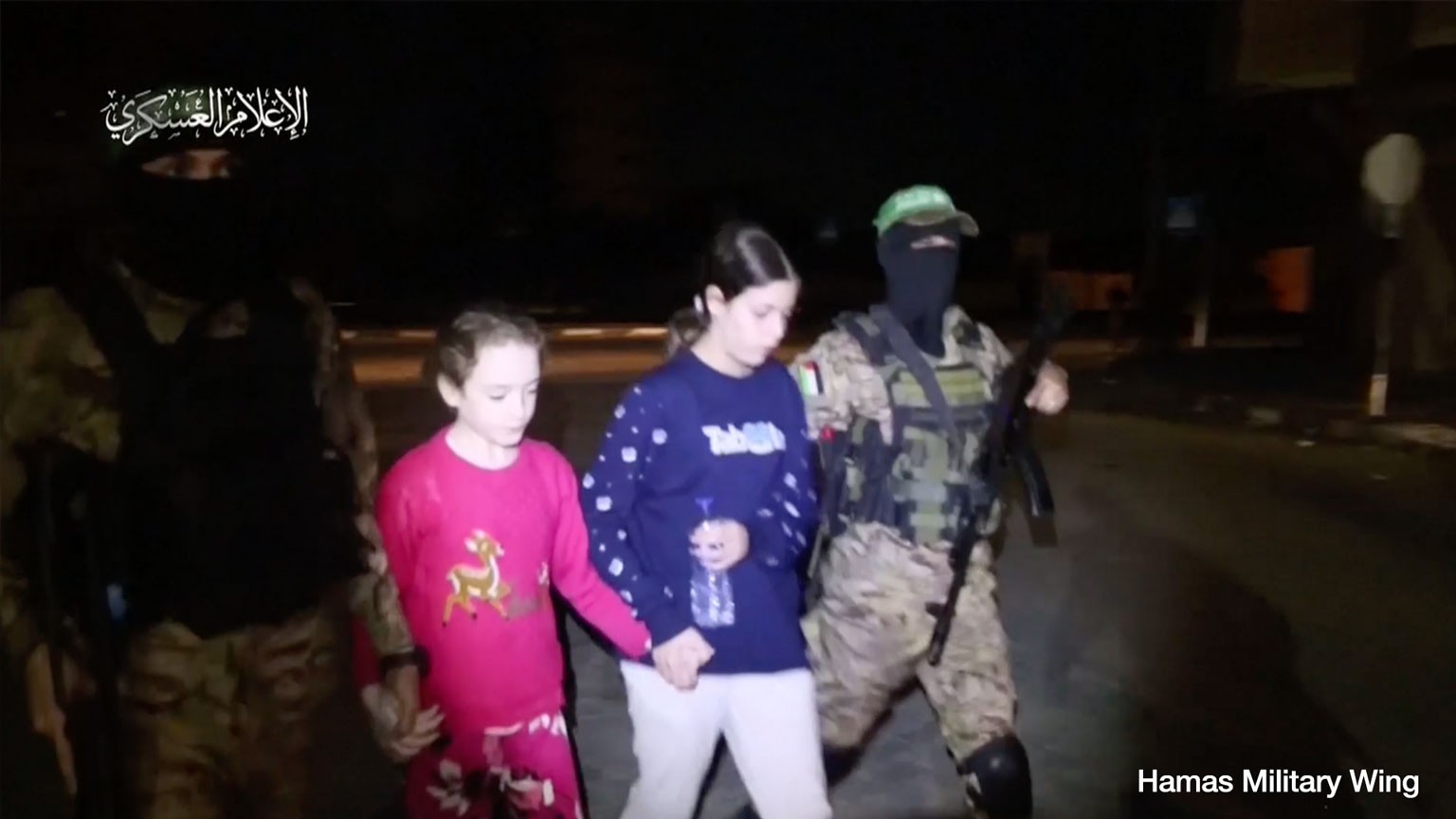Hamas says it has agreed to the two-day extension under the same terms as before. It has demanded that three Palestinian prisoners be released for each Israeli hostage freed.
In the past four days, Hamas has released 69 hostages, including foreign nationals, while Israel has freed 150 jailed Palestinians.
Families of freed hostages express relief
Local media outlets in Israel have been focusing on the situations endured by the hostages and interviewing their families.
According to the media, some of the hostages were fed mainly rice and pitas on an irregular basis. Media reports say some lost about 7 kilograms in 50 days.
They also say some hostages had to sleep on plastic chairs in what appeared to be a reception room, and were forced to wait hours to use the toilet.
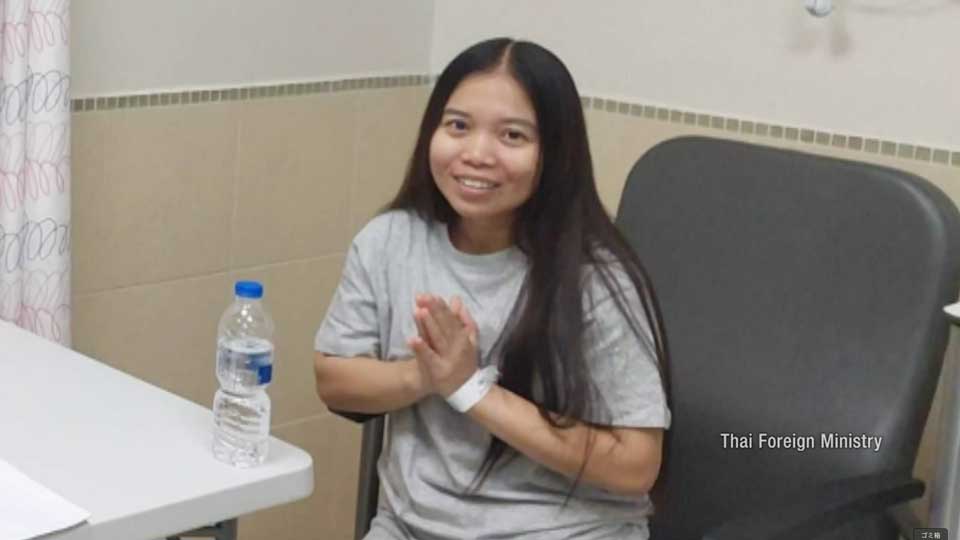
Nutthawaree Munkan is one of the hostages who was recently released. On Sunday, she spoke with her mother in Thailand via a video call for the first time since she was kidnapped.
"I lost all my belongings, but I'm fine. I miss you. I'll come home and see you soon," said Nutthawaree.
Her mother said she had been worried Nutthawaree would be tortured and told her, "Just you getting home alive is enough."
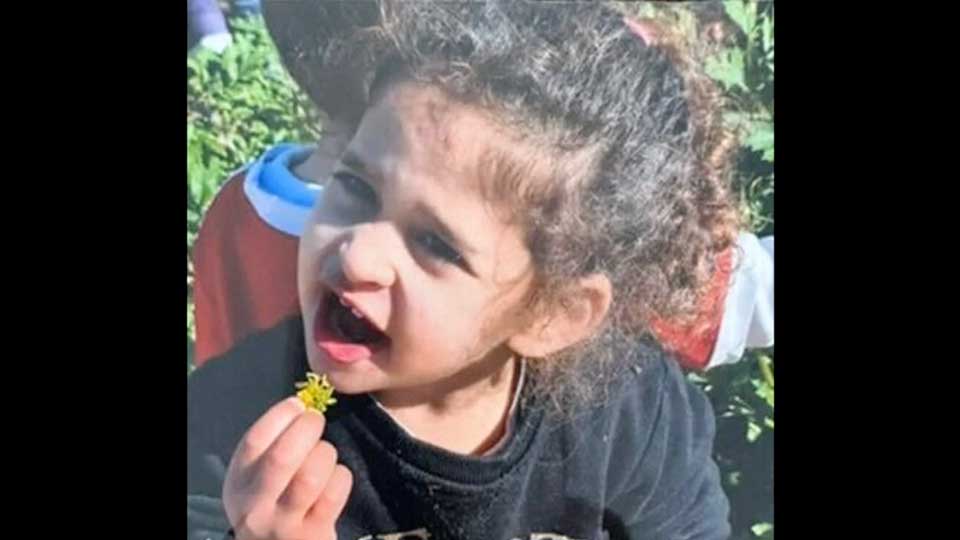
The White House says 4-year-old American Abigail Edan was also freed. Her parents were killed by Hamas in the October 7 surprise attack.
Abigail's grandfather said through a translator, "Now I'm a bit relieved. But I'm not fully relieved because Abigail's parents are not here."
Freed Palestinian prisoner recounts abuse
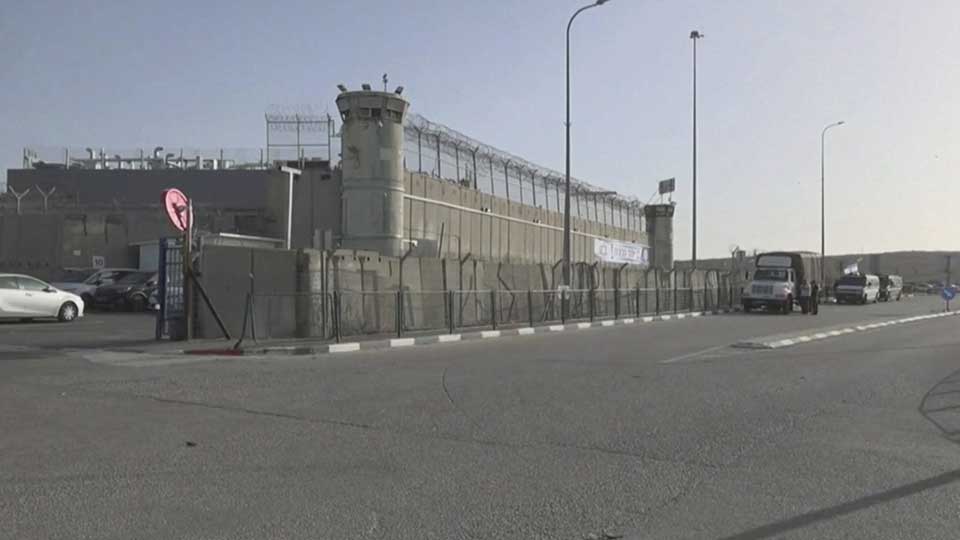
About 7,500 Palestinians are reportedly being held in Israeli prisons. More than 3,000 of them are said to have been detained after Hamas' October 7 attack.
Some were reportedly jailed in connection with social media posts that were considered ''incitement'' under Israeli law.
Israeli authorities can effectively imprison Palestinians indefinitely without charge or trial under a policy called administrative detention.
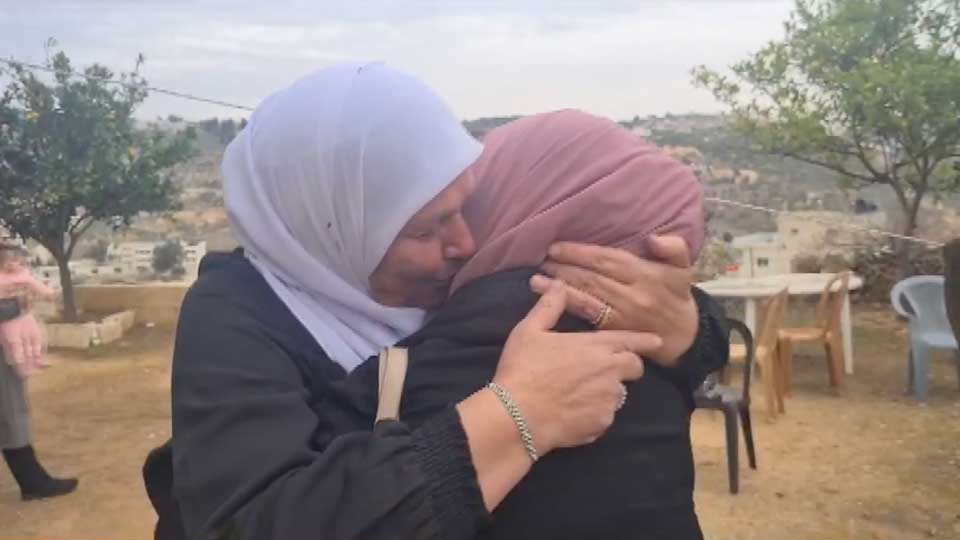
A 59-year-old Palestinian, Hanan Albarghouthi, was released on November 24 after being detained by Israeli authorities in the West Bank last September. She says she was accused of having ties to Hamas.
She says prisoners were forced to strip in front of guards for searches and were tortured after October 7.
She also says use of toilets and showers were restricted after the Hamas attack. Eleven people were held in a 6-person room and ventilation windows were kept closed.
The woman says a prison officer sprayed tear gas in the room on October 29 and then beat the detainees. She says she thought she would die.
She also says she was not informed about her impending release until just before it took place. She adds that a senior prison official told her in a threatening tone not to celebrate her release or talk to the media about the prison conditions.
The woman says her four sons are still being detained by Israel along with other Palestinians.
Expert analyzes where things go from here
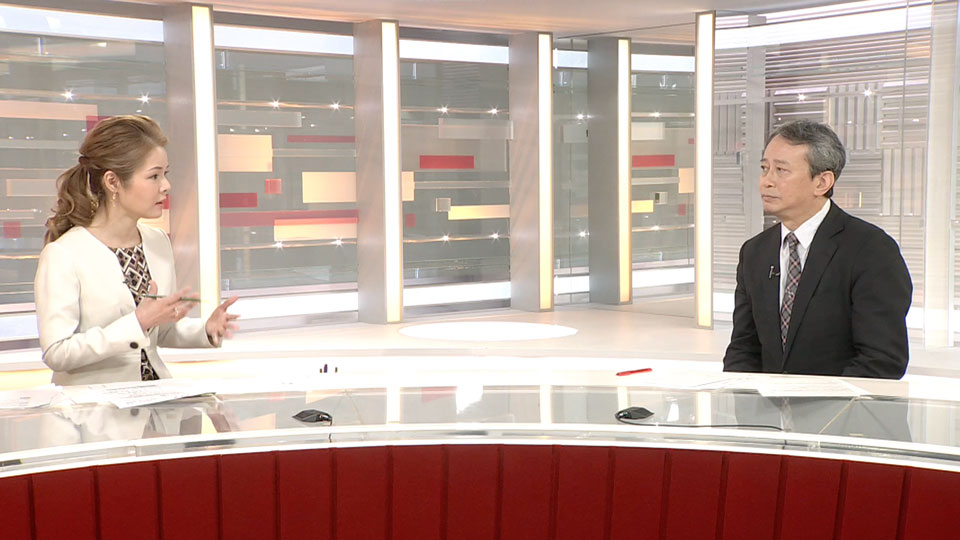
NHK World's Yamamoto Miki on Tuesday spoke with Keio University Professor Tanaka Koichiro — a Middle East expert — about the Israel-Hamas conflict. Their comments have been edited for brevity and clarity.
Yamamoto Miki: The initial four-day truce is about to end. How do you think the hostage/prisoner exchange is going?
Tanaka Koichiro: We can say it's a success because it's taking place.
But we shouldn't forget Hamas still has about 170 hostages, while some 3,000 Palestinians remain jailed or are being held in administrative detention in Israel without any kind of trial or judicial say. So we shouldn't forget that this ordeal is ongoing and will last for some time.
Yamamoto: Yes, many people are still waiting for their loved ones to be released. The pause has also created time for humanitarian aid to enter into Gaza. What do you make of the situation on the ground?
Tanaka: Well, Hamas from the beginning complained there weren't adequate supplies coming into the northern part of Gaza. I believe that has been resolved. UN agencies as well as the United States have confirmed that aid is flowing into the Gaza Strip.
But we shouldn't forget that Gaza has been deprived of necessary humanitarian supplies for more than a month.
The conditions on the ground in Gaza — as seen in videos and televised interviews — are horrible. Given the destruction, it's very hard to believe that people can sustain their lives there.
Yamamoto: Now Qatar has announced the truce will be extended for another two days. What do both sides get out of a longer truce?
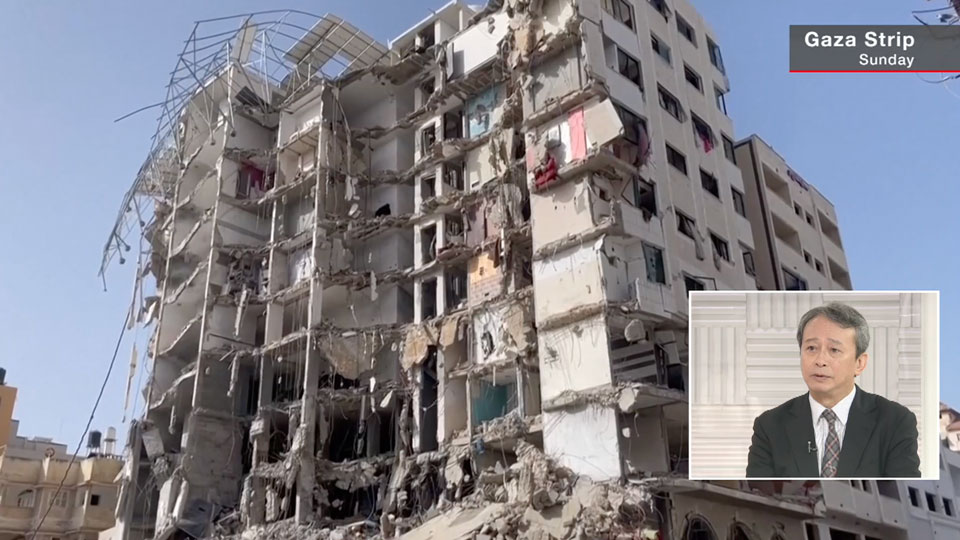
Tanaka: Well, Israel can expect the release of more hostages. Maybe not a large number, but still enough. For the Palestinians, I think it's going to be very tough after the two-day extension because Israel has already announced it will restart its operation in Gaza.
That will simply mean that Gazans — regardless of being Hamas or not — are going to be targeted and they may see enormous amounts of destruction and loss of lives, as has been the case since October 7.
So I think the conditions are better for the Israeli side than the Palestinian side.
Yamamoto: Yes, the truce extension doesn't mean the end of the fighting. So where do things go from here? Both Israel and Hamas have said they're committed to resuming fighting.
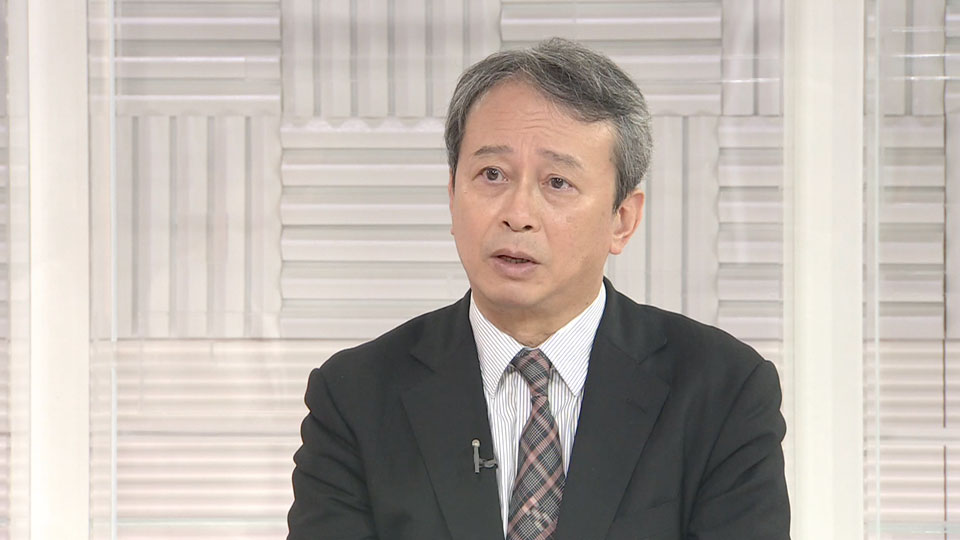
Tanaka: Yes, this is a very sad moment. Israel is adamant on destroying Hamas. Not only its military but its political infrastructure as well. So if Israel continues its offensive, eventually southern Gaza is going to experience a lot of destruction like the north.
All 2.1 million or so Gazans would then be squeezed into the southern part of Gaza, living with nowhere else to go and without infrastructure.
So this is a very devastating time and we haven't seen any sort of situation in which the international community speaks with one voice and calls for a cessation of hostilities.
